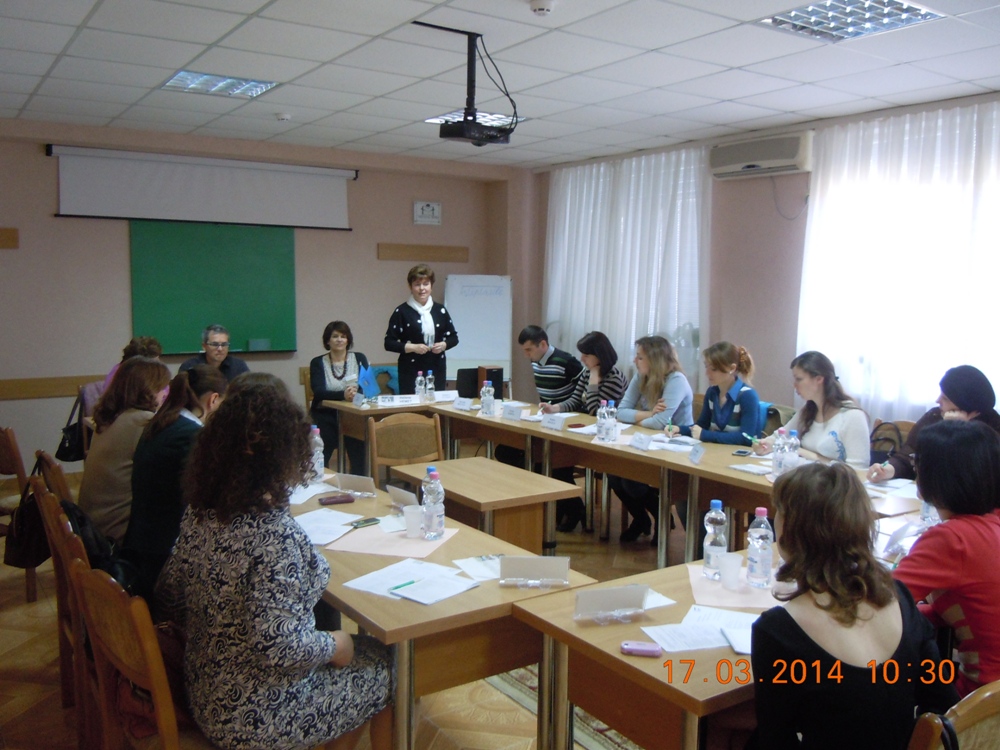In Moldova, teachers’ living and working conditions are extremely tough. In early 2013, ESTU (the Education and Science Trade Union in Moldova) asked the Education and Solidarity Network and UNSA Education to help improve its young campaigners’ trade union skills and provide them with the tools to argue for and secure decent living conditions. At a trade union training session, Moldovan teachers and educational advisers took ownership of the topic of health education in schools.
In Moldova, teachers’ living and working conditions are extremely tough. In early 2013, ESTU (the Education and Science Trade Union in Moldova) asked the Education and Solidarity Network and UNSA Education to help improve its young campaigners’ trade union skills and provide them with the tools to argue for and secure decent living conditions. At a trade union training session, Moldovan teachers and educational advisers took ownership of the topic of health education in schools.

Three two-day trade union training sessions were organised between 17 and 22 March 2014 by UNSA Education and the Education and Solidarity Network with the support of Education International. In total, 45 Moldovan teachers and educational advisers took part in the workshops. The trade union training sessions looked at verbal communication techniques and coordinating a meeting with a view to eventually conducting negotiations. The aim of these techniques was to devise a message, inform, gather opinions and, of course, persuade. This fast-track training was crammed into two days, alternating theory with filmed practical simulation sessions.
One of the workshops involved persuading teaching colleagues of the benefits of health education in schools. Two of the participants had fifteen minutes to prepare for their meeting; they had to choose what they considered to be the most compelling arguments from a list in order to win over their colleagues. To simulate a genuine dissemination meeting, the other trainees prepared arguments corresponding to various scenarios encountered in real life. The session included fierce opponents, jaded sceptics, worriers, troublemakers and finally people who were receptive and in favour of the idea.
Participants played the game very well. The exercise, which accounted for a quarter of the training, was filmed and analysed. On completing training, participants were given a certificate to say that they had participated fully and actively in this seminar. The event was given a very positive response with the ESTU president expressing his desire to repeat the experience in the same format with 45 other members of the trade union. The exercise offers the clear benefit of improving participants’ trade union expertise and raising their awareness of health education in schools. Although this topic is rarely the focus of trade union concerns, it is the subject of several Education International resolutions. This initial teacher awareness-raising exercise may be followed by more advanced training on the theme of social protection.
The UNSA Education trainer, Fabrice Séchet, and the coordinator Hélène Hemet (national secretary), who designed the exercise relating to health education, believe that it is very relevant to focus on this area of work. The fact that it is not a regular trade union topic forced participants to step outside their usual framework and habits. Based on the opinions of the trainer and national secretary, UNSA Education is in favour not only of keeping this module within the UNSA Education training programme but also of replicating it in other countries – especially since the module was designed to enable simultaneous interpreting and since UNSA put forward the resolution at the sixth Education International Congress.




